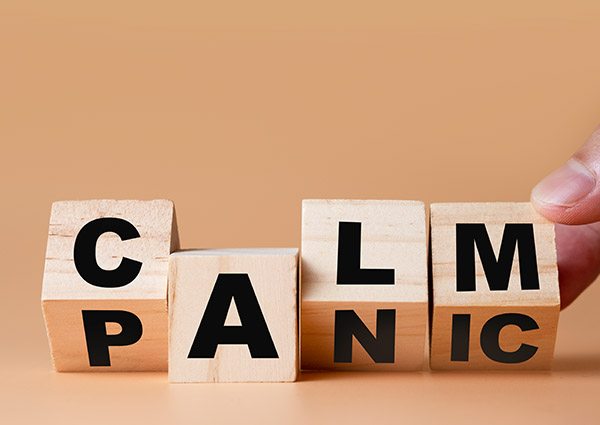
All About Anxiety
When worry takes over and interferes with your daily life, it’s likely due to anxiety. According to the National Alliance for the Mentally Ill, or NAMI, anxiety is the most common mental health disorder in the U.S. and affects 19% of Americans. Anxiety disorders include generalized anxiety disorder, social anxiety disorder, agoraphobia, separation anxiety disorder, panic disorder and phobias. Associated conditions include post-traumatic stress disorder or PTSD, and obsessive-compulsive disorder or OCD.
While it is common and affects about 40 million Americans, only about one-third seek treatment. Recognize the risk factors and symptoms, then find out how to combat this disabling yet highly treatable condition.
Risk Factors
Some particular types of anxiety disorders have unique risk factors, but many are common to them all. Also, anxiety is thought to be caused by a combination of inherited as well as environmental reasons. Some of these include:
- Stressful events or negative life experiences
- Early shyness
- Biological family members with anxiety or other mental health conditions
- Prolonged illnesses and certain conditions such as thyroid or heart problems
Symptoms
Symptoms vary depending on the type of anxiety and the severity. Still, they may include physical symptoms such as racing heartbeat, sweating, muscle tension, sleep problems, dizziness, headaches, tremors, shortness of breath, fatigue and digestive issues like diarrhea or nausea.
Emotional symptoms include nervousness, restlessness, feelings of dread or detachment, difficulty overcoming anxious thoughts, irritability, and avoidance of activities or places that trigger the symptoms.
Treatment
While many never seek help, anxiety is actually a highly treatable condition. Generally, anxiety disorders are treated with medication, therapy or a combination approach.
Therapy may include Cognitive Behavioral Therapy or CBT, a time-limited treatment that focuses on identifying and correcting negative thinking patterns. Exposure therapy allows patients to face their fears and learn how to control them in a safe environment. Often, relaxation and stress management techniques are learned as well, such as breathing techniques, meditation and guided imagery.
Medications that may be used to treat anxiety include anti-anxiety drugs like benzodiazepines, which must be carefully administered to avoid dependence. Others include buspirone, an atypical anti-anxiety medicine, or beta-blockers. Antidepressants are also often used to treat anxiety.
If you or someone you know needs help with anxiety, start with a visit to a health care provider to ensure symptoms aren’t due to a medical condition. Then, a referral to a counselor, psychologist or psychiatrist can begin the healing process, starting with a proper diagnosis and treatment plan.




